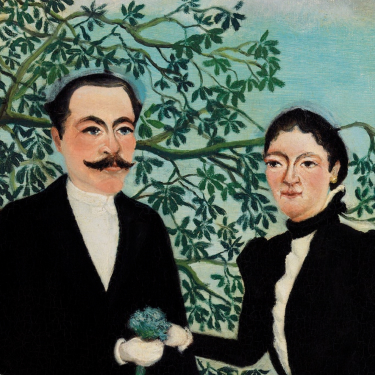The Enigma
LOVE

TPCF
Quick definition
Desire fun and adventure in love. Want shared lives with their partners. Impulsive and spontaneous yet grounded by their sensible approaches to love.
Find your score on over 100 traits on Dimensional.
Download
Description
TPCFs are characterized by their pragmatic approach to relationships, combined with a strong preference for interdependence and shared experiences. They value stability and reliability in their partners, seeking someone who can not only share in the day-to-day joys of life but also align with their long-term goals. TPCFs approach love with a blend of practicality and optimism, believing that a successful relationship is built on mutual respect, shared responsibilities, and the ability to have fun together.
During the early stages of dating, TPCFs are likely to be cautious, taking their time to assess potential partners against their pragmatic understanding of what makes a relationship work. They are drawn to individuals who are both grounded and capable of enjoying life's adventures. In long-term relationships, TPCFs shine, providing a stable and supportive environment for their partners. They value routines and traditions that reinforce their bond, yet they're always ready to inject a sense of fun and novelty into their lives together.
Opposite type
TPCFs are the opposites of IDAEs.
Desires
- A partner who shares their practical outlook on life and love.
- Stability and security in their relationship.
- Shared responsibilities and goals with their partner.
- To enjoy life's pleasures and adventures together.
Fears
- Imbalance in the relationship, feeling like they are giving more than they receive.
- Emotional instability or unpredictability from their partner.
- Losing their sense of connection or shared purpose.
- Falling into monotony without enough variety or fun.
Inner psychology
TPCFs may have grown up in environments that emphasized the importance of reliability, responsibility, and practical achievements. They likely learned to value stability and security from an early age, possibly as a reaction to witnessing instability or unpredictability in their surroundings. This background instills in them a desire for a partnership that is both emotionally and practically supportive. Their preference for fun and shared adventures could be a response to a need for balance, ensuring that their lives are not solely defined by responsibilities. TPCFs might also gravitate towards interdependence as a way to create a sense of belonging and shared identity, reflecting a deep-seated belief in the power of teamwork and mutual support.
Distribution of user scores
0
25
50
75
100
Other Archetypes in Love
Opposite
In(T)erdependent
(I)ndependent
(D)reamer
(P)ragmatic
(C)entered
(A)nxious
(E)motion & stability
(F)un & stimulation
Strengths
- Reliability: Consistently dependable, providing a stable foundation for the relationship.
- Balance: Skilled at balancing fun and responsibility, ensuring a well-rounded partnership.
- Mutual Growth: Committed to shared goals and mutual improvement, fostering a sense of progress and achievement.
Challenges
- Risk Aversion: May struggle with spontaneity, preferring the safety of the familiar.
- Communication of Needs: Might not always express their need for fun and adventure, leading to potential dissatisfaction.
- Adaptability: Can find it challenging to adjust to unexpected changes or emotional upheavals.
Traits in an ideal partner
- Shared Pragmatism: Values practicality and shared life goals, aligning with TPCFs' approach to life.
- Emotional Stability: Offers a consistent and reliable emotional presence, matching TPCFs' need for security.
- Adventurous Spirit: Willing to explore and enjoy new experiences, bringing balance to TPCFs' practical nature.
Advice for healthy relationships
TPCFs would benefit from embracing a degree of spontaneity within their relationships, allowing themselves to step outside their comfort zone and explore new experiences with their partners. It's important for them to communicate openly about their desires for both stability and fun, finding ways to integrate these needs into their daily lives. TPCFs should also encourage their partners to share in the planning and realization of mutual goals, fostering a true partnership. Learning to navigate and accept emotional vulnerabilities—both their own and their partners'—can deepen their connections and enrich their relationships.
At their worst
When under stress or feeling unfulfilled, TPCFs can become overly focused on practicalities, neglecting the emotional or fun aspects of their relationships. They might become rigid, resistant to change, and overly critical of deviations from their shared plans or goals. This can lead to a stifling environment where both partners feel confined by expectations and responsibilities, potentially leading to dissatisfaction and disconnection.
At their best
At their best, TPCFs are the backbone of a thriving, balanced relationship. They are adept at managing life's practicalities while ensuring that their partnerships remain vibrant and fulfilling. Their ability to balance responsibility with enjoyment makes them ideal partners for those who value stability as well as adventure. By fostering open communication and shared experiences, TPCFs can create deeply satisfying and enduring relationships that are both grounded and joyously alive.














